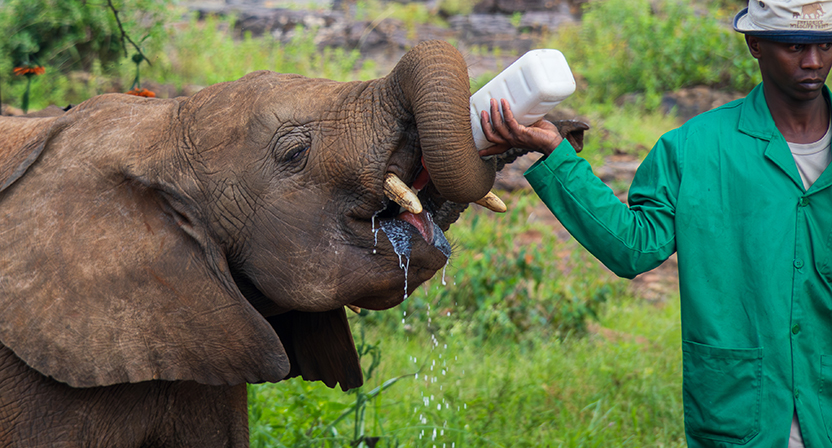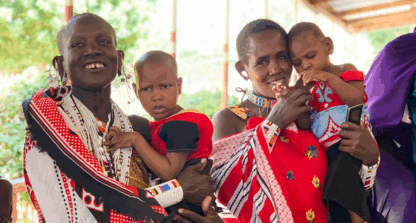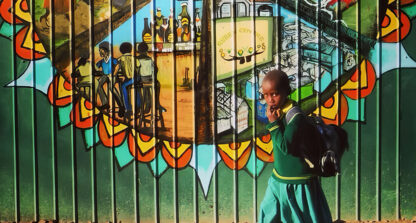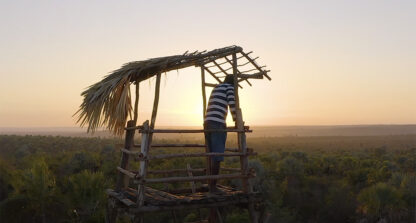Impact in Focus – Sheldrick Wildlife Trust:
Rescuing More than Elephants

As our 2025 #OneTeam for Kenya campaign gains momentum, we celebrate the powerful connections between conservation, compassion, and community resilience. Each gift to our campaign helps safeguard the ecosystems we all depend on, while uplifting the animals and people most vulnerable to climate and economic disruption. Among our long-standing partners is the Sheldrick Wildlife Trust (Sheldrick), whose work across Kenya protects elephants and other iconic species through an integrated model of animal welfare, environmental stewardship, and education.
When we protect elephants, we also protect entire ecosystems. When we fight poaching, we defend biodiversity, tourism, and livelihoods. When we nurture one orphaned calf back to health, we begin to heal something more than a single animal. Wildlife protection work is not just about saving animals. It’s about safeguarding the future by creating ripple effects that strengthen both natural ecosystems and human communities.
A Life on the Line
When Ari was found wandering the edge of Tsavo, her condition was critical. She was just a few months old, likely orphaned by poachers or human-wildlife conflict. Her front leg was swollen, her eyes listless. For young elephants, trauma is both physical and emotional, and their grief can be as deadly as any injury.
But Ari was lucky. She was spotted by a Sheldrick aerial patrol, tranquilized by a mobile veterinary team, and airlifted to Nairobi. This journey represents a miraculous feat, even if it has become sadly routine for the Sheldrick’s Orphans’ Project.
The Long Road to Wild
At the sanctuary in Nairobi National Park, Ari was introduced to a surrogate herd of other young orphans—each with their own story of loss. The bond between them was immediate. They touched trunks, followed one another, and slept side by side.
Over the months, Ari’s transformation unfolded gradually under the care of the Sheldrick team and her new family. She gained weight. Her leg healed. She began charging into mud baths, slurping bottles of specialized formula, and mimicking older elephants as they stripped bark from trees. Slowly, she unlearned fear. Just as crucially, she also unlearned dependence.
At Sheldrick’s reintegration units in Tsavo and Ithumba, elephants like Ari begin the final phase of their transition—living in semi-wild conditions, gradually rejoining herds, and eventually disappearing back into the bush. Some take five years. Others return within two. All leave on their own terms, taking with them the skills and confidence they need to survive in the wild.
Conservation That Creates Community
While the Orphans’ Project is the heart of Sheldrick’s work, its reach is far greater. Their comprehensive approach addresses conservation challenges while creating meaningful opportunities for Kenyan communities:
- Mobile veterinary units covering over 100,000 square kilometers, employing veterinarians, pilots, and support staff
- Anti-poaching patrols that remove snares, intercept illegal activity, and monitor migration routes
- Community education initiatives that train local conservation champions and foster local stewardship of wildlife and land
- Habitat protection programs to secure corridors vital for long-term elephant survival
This three-dimensional approach—rescue, protection, and community partnership—demonstrates how effective conservation creates jobs, preserves ecosystems, and builds sustainable futures for both wildlife and people.
Why It Matters Now
Kenya’s elephant population has seen hopeful signs of recovery in recent years—but the threats remain real. Climate change, land conversion, and illegal trade continue to endanger not only elephants, but the forests, rivers, and tourism-dependent economies they support.
Ari’s story isn’t just a rescue tale—it’s proof of what becomes possible when conservation efforts address both immediate crises and long-term sustainability. Her successful reintegration represents hope not just for her species, but for an approach to conservation that benefits entire communities.
Your Role in the Herd
Through our #OneTeam for Kenya campaign, you’re supporting the comprehensive, community-centered conservation championed by Sheldrick Wildlife Trust. Whether your gift supports fuel for a mobile vet team or the milk that feeds a single calf, it’s part of a model that protects wildlife while creating opportunities for Kenyan communities.
Experience this work firsthand on our Impact Journeys to Kenya, where you’ll have the chance to visit Sheldrick’s sanctuary, meet the team, and walk alongside the elephants who represent a future we can still shape.
Together, we’re protecting more than a species. We’re safeguarding an approach to conservation that creates jobs, preserves ecosystems, and writes a story of hope that’s still unfolding across Kenya’s landscapes.
Join us
To learn more about or contribute to our #OneTeam for Kenya campaign or to contribute to our Impact Fund, visit richerlifefoundation.org/otk. To explore our Impact Journeys, visit richerlifefoundation.org/impact-journeys.



